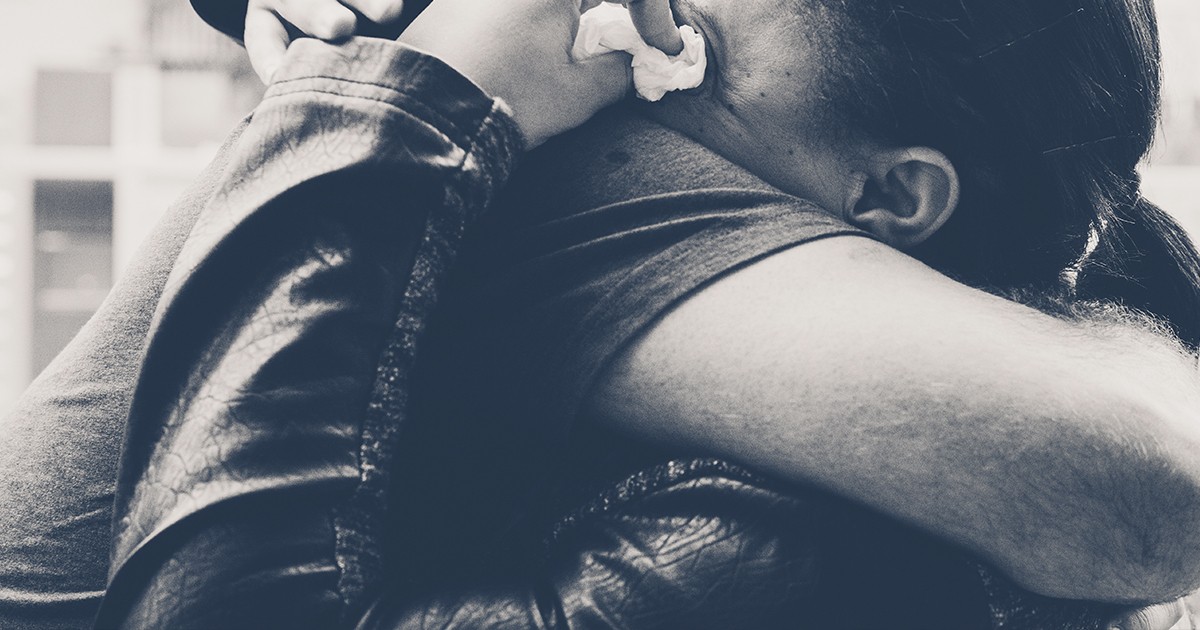
By Celia Chandler
“He’s not answering his texts or phone.” I fight tears. “What’s happened? Where is he?”
My friend, Joanna, is reassuring at the other end of the line. “I’m sure everything’s okay. Maybe he went to his dad’s? Or yoga?”
Leonardo, my newfound potential boyfriend, is addicted to hot yoga. It’s part of his mystique: he’s a retired public servant who drives a Camaro, cares for his dad, designed his own tattoo sleeve, and goes to yoga five times a week with his mat rolled up on the back of his Harley.
Tonight, though, he said he wasn’t going to his class so we made tentative plans to get together. Now he’s MIA.
Dating was not something I’d planned. I’d blogged just weeks ago that I wouldn’t bother, given it’s such hard work with limited potential in middle age. What I didn’t write about was my fear of meeting someone who’d get sick and die. Some people experience caregiving and widowhood more than once—I just can’t be one of them.
If I’d died first, Jack would have found someone within months. But unlike roguish Jack, I’d been single until we met when I was forty-three and entered the Sturm und Drang of our nine years, complete with two stepchildren from his first marriage in Poland and two more from the second here in Canada. He was my magnetic Pole until cancer stole first his spirit, and eventually his life, taking with it my imagined future. The force that drew Jack and me together often drove us apart, too, with the mean-spirited words of magnetic repulsion. I’ve recently concluded death likely beat divorce to the punch. Now, four years later, I’ve settled back into my solitary cocoon.
Time with Leo is so easy. We meet in the park next to my house and then walk for hours, hand in hand, his 125-pound Bernedoodle, Freddie, on one side and me on the other. Freddie’s an imposing dog and with Leonardo’s Santa-like beard, they’re a striking twosome. I like to think I make a good third. Sometimes we drink wine in one of our houses, conveniently seven minutes apart on foot. Occasionally we go out, but COVID still has us keeping low profiles. But we always talk, whether walking or by phone at bedtime. No topic is off-limits including his nervousness about living up to Jack’s colorful persona, described on my blog. I’ve assured him there’s no need to worry.
“Oh Jo, this disappearance reminds of times Jack went missing. Or was late. Or forgot about a plan. He always made it up with flowers and saying something witty. But I’d love not to go down that mountainous emotional road again.”
“I’m sure there’s a good explanation.”
“I’m going to his house to look. Stay on the phone with me.” We chatter about nothing as I walk up John Street to peek at his Victorian semi. “His car is gone. He must have gone to his class. Or his dad is unwell. I gotta go now. I’ll call you later.”
Even though Jo has known me through Jack’s illness, his death, and the heaviest of my grief, I don’t feel comfortable sharing that my guts are churning, my hands are sweating, and adrenaline has me close to puking.
Widowhood is both superpower and kryptonite. We can take on anything because we have experienced the worst. But every loss, every fear, rips open the original wound, exposing the rawness of early grief. Thankfully, the flesh knits together more easily each time but the depth of the pain is the same. I walk home to await the mending of this tear.
An hour later my phone pings.
“Just noticed I didn’t press send on this text. ‘I’m going to yoga. Talk to you when I’m done.’”
Before I have a chance to type out a response, my phone lights up with Leonardo’s face. “I’m really sorry. I saw you called too. You must have really been worried.”
“I was.” There’s a catch in my voice. I don’t want him to know how worried. But I can’t stop myself. I’m crying now and words I might regret pour out, words reflecting feelings I didn’t even know I was having. “I was scared you were dead.”
Fucking dead husband. I see the potential for death everywhere. I look at my dogs and measure not the quality of their life but the quantity before I have to make a difficult decision to euthanize. Oh sure, I know I can handle the death when it happens—widows can do it all—but part of the package is the kryptonite: obsessive foreshadowing.
“Wow. That must have been awful.” Pause. “I’m not dead.” Pause. “I’m on my way over.”
“You don’t have to.” My gasps and sniffles convey a different message.
“There in ten.”
“Thanks,” my voice small. I’m not ready for Leo to see me ugly-cry in my jammies but I’m surprised at how much I like the idea of him being here when I’m feeling so vulnerable. So few have ever
seen me when I need comfort and even fewer have offered it. Certainly not Jack, who recoiled as though tears were acid, preferring to jolly me out of my mood than to coddle it.
In seven minutes, there’s a tap at my door. Leo envelops me physically and emotionally. We sit on the sofa while I cry; he soothes me by stroking my head and back. The superpower and its kryptonite both recede and I’m focused on the present. Everyone dies. But Leo’s right— he’s not dead. We’re living this moment together.